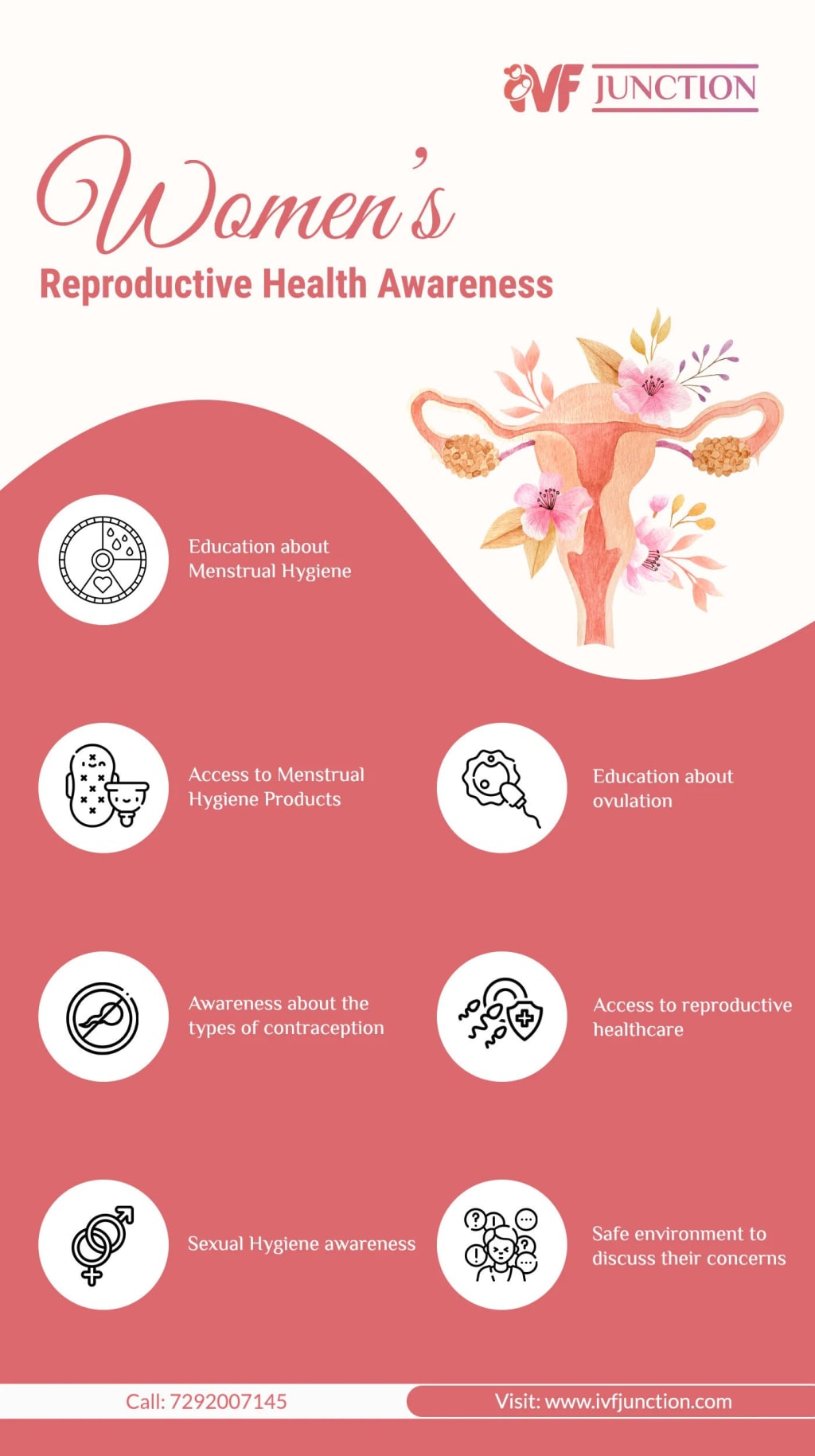Psychological Impact of Reproductive Health on Women
Reproductive Health on Women

Indian women are some of the best doctors, scientists, chefs, executives, artists, engineers, designers, pilots, athletes, social workers, and businesswomen. Just name any field there is to excel at, and Indian women would find a way to leave their mark with the quality of their work. However, this is just one side of the coin, and even to reach this position, women have had to work extremely hard – fighting patriarchy, sexism, prejudices, and stereotypes. The women who are capable of leading the world are born in a society that thinks reproductive health is something to be discussed within their homes, that too with whom the society deems fit. There is no concept of discussing reproductive health with the males in Indian households, no matter how progressive the inhabitants claim they are.
Discussion around Reproductive health is something that is not only discouraged but looked down upon. What business does an unmarried woman have to visit a gynecologist? Is one of the popular reactions women get when trying to receive credible advice about their health. It’s as if despite years of proving themselves worthy of the same status as men if not more, women struggle with the most basic of amenities – access to reproductive health. Approachable and friendly gynecologists can be hard to come by, despite them being in abundance, simply because a woman doesn’t know which one to visit – there is no guidance provided to her growing up about how to choose the right Gynecologist. Somehow, even if a woman decides to consult a gynecologist after seeing online reviews and choosing the doctor that fits her budget, her problems are not over. If a woman is seen exiting a gynecologist’s clinic it quickly becomes a matter of discussion for the neighborhood.
It’s as if we have spent years and years fighting for equality but women still haven’t achieved bodily autonomy. It’s as if everybody thinks they are entitled to know exactly what the woman is up to and have an opinion on it.
This lack of access to Gynecological care for young women combined with the stigma attached to it is putting so many young people at risk of contracting gynecological issues – PCOS, Fibroids, Endometriosis, Menstrual disorders. All these have become extremely common and if there has ever been a time to prioritize gynecological care, it is RIGHT NOW. So many disorders of the reproductive tract can advance to infertility if they are not diagnosed and treated on time. Additionally, women deserve to know how to maintain menstrual hygiene, how to have safe sex, the right kind of contraception for them, how to manage PMS symptoms – among hundreds of other things that the right gynecologist would be able to help them with.
The Stigma Around Menstrual Hygiene
The society looks at menstrual hygiene products like they are some sort of weapon used by menstruators. Yes, though they could be a weapon for having safer periods (See what I did there? Some positive psychology) but they are definitely not as dangerous as they are made to look. People, especially young menstruators absolutely dread having a period stain on their uniform – they are conditioned to believe that menstruation is a little secret that you share with yourself, and if somebody else knows about it, especially people from the opposite sex is extremely embarrassing. The physical toll that periods have upon a person when combined with the shame and stigma becomes a very stressful time for the menstruator. Women are already suffering from a range of symptoms ranging from mild to severe, and add to it the psychological impact that comes with the pressure of keeping their periods a secret makes it extremely difficult for women to talk about their issues.
A major chunk of Indian women do not even have access to safe menstrual hygiene products like pads – they have to rely upon old clothes, straw, and even grass during their periods.
Access to hygienic menstrual products to menstruators needs to be made available as well as education about how to use them.
Women shouldn’t feel ashamed about having to buy pads, do we feel ashamed while buying a band-aid to contain the bleeding from a scrape? Then what exactly is it about menstrual blood being looked at from such a biased lens that we would rather wrap up every evidence of having our period, in this case, a packet of pads, instead of adopting a more It is what it is approach?
Menstruation needs to be normalized like every other bodily process. It shall always be a taboo – like it has been for years now, unless we decide to stop attaching any shame to it. We know it is nothing to be ashamed about, why do we give in to society’s expectations to treat it a certain way? It is very important to say menstruation with #No_Sankoch : no need to hesitate or feel ashamed. This should have been done years ago, but since it wasn’t, it’s all the more important that we join hands to ensure no menstruator feels any shame when they’re menstruating.
The Hormonal Impact of Reproductive Diseases
Diseases of the female reproductive tract have become very common. PCOS, Endometriosis, Fibroids, and menstrual disorders have become extremely common. Some reproductive diseases can also have an impact on hormones. Hormones, though tiny molecules, have a massive impact on our bodies, and especially our mood. The reason for this is simple, hormones such as Estrogen are responsible for maintaining the regulation of neurotransmitters such as endorphins. These neurotransmitters need to be in a delicate balance and in the optimal amounts for us to feel our best, and if a reproductive disease hampers the regulation of hormones such as Estrogen, it could lead to neurotransmitters being affected and thereby affecting our mood.
It is important that people who have reproductive conditions, or any condition that can affect their hormones and mood have access to Psychologists and Counselling, as well as advice about exercise, food choices, meditation, and expert help. It is important to make people aware of the hormonal issues and that treatment is available.
Reproductive Health Awareness
A lot of people are completely unaware of how they’re supposed to ensure that they have a healthy reproductive system. This leads to a lot of stress about conception-related queries, preventing unplanned pregnancies, avoiding sexually transmitted infections, and understanding your reproductive system better. Being educated about your reproductive health would make you more empowered and help you make better choices for your reproductive health. A gynecologist can help you become aware about many aspects of reproductive health, some of them are –
• The type of contraception to use – there are many types of contraception methods available – surgical, hormonal, and barrier methods. A gynecologist would help you understand what kind of contraception is the best for you and your partner. Remember, just because a contraceptive prevents pregnancy doesn’t mean it will prevent Sexually transmitted infections too. It is important to choose contraception that offers protection from unplanned pregnancies and STIs.
• How to track your menstrual cycle – Most women do not know how to calculate the day of their ovulation, a very important factor for both if you want to conceive and if you are not planning for a baby. We understand, it is sort of confusing to manually mark when your ovulation date is, hence we have created a free tool for you – IVF Junction Ovulation Calculator. You simply need to enter the date of your last period and the length of your cycle. The cost calculator would automatically calculate your fertile period helping you plan your pregnancy better.
Inclusivity at Schools, Colleges, and Workplaces
Menstruators shouldn’t feel paranoid if they get their period at school, college and work or feel like they are not being heard about their health. Far too many women miss school and college for the fear of staining their clothes during their period. People prefer to use an excuse to get some time off instead of telling the truth about their period cramps because they feel that their concerns wouldn’t be taken seriously by their organizations. It is important that we make schools, colleges and workplaces more menstruator friendly – stocking up on menstrual hygiene products, accessibility to pain medication that has been prescribed by the doctor, clean water, and provision of period leaves should become common. These small gestures not only help a menstruator feel more valued but also normalizes these conversations.
Take Away
Our society needs to evolve when it comes to talking about periods. A vast majority of us feel that we do not have safe spaces to talk about Reproductive health and that needs to change. IVF Junction urges you to talk about your concerns with #No_Sankoch. We offer a completely judgment-free zone at our IVF Junction Support Forum and provide only the most credible information, by the experts themselves at our IVF Junction Knowledge Hub. We are with you when it comes to breaking the taboos, now is the time to speak up and ensure that reproductive health isn’t something to be spoken about in a hole and corner, but to be embraced, spoken about, and discussed freely.
Source: https://ivfjunction.com/blog/psychological-impact-of-reproductive-health-on-women/





Comments
There are no comments for this story
Be the first to respond and start the conversation.